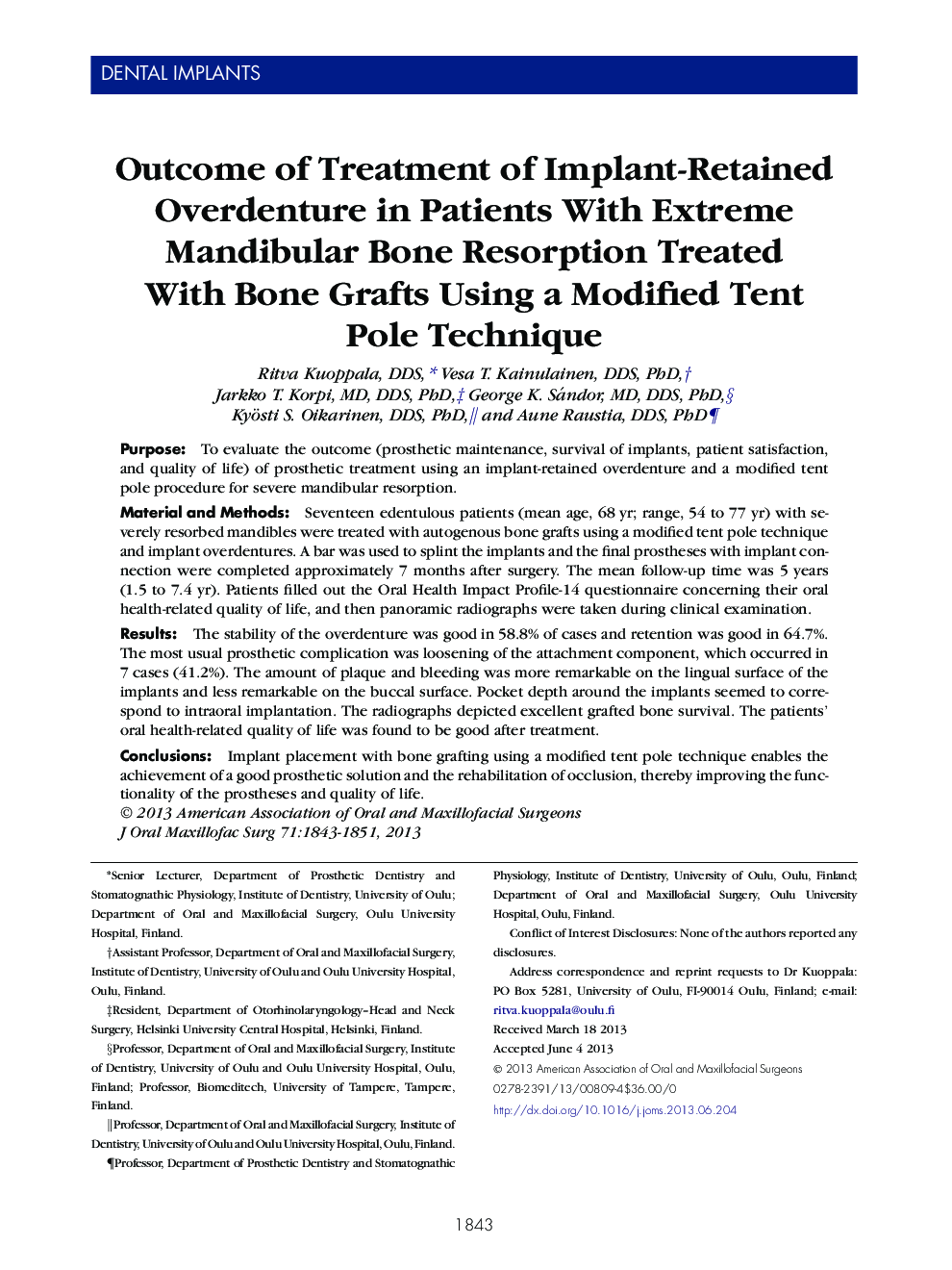| Article ID | Journal | Published Year | Pages | File Type |
|---|---|---|---|---|
| 3153564 | Journal of Oral and Maxillofacial Surgery | 2013 | 9 Pages |
PurposeTo evaluate the outcome (prosthetic maintenance, survival of implants, patient satisfaction, and quality of life) of prosthetic treatment using an implant-retained overdenture and a modified tent pole procedure for severe mandibular resorption.Material and MethodsSeventeen edentulous patients (mean age, 68 yr; range, 54 to 77 yr) with severely resorbed mandibles were treated with autogenous bone grafts using a modified tent pole technique and implant overdentures. A bar was used to splint the implants and the final prostheses with implant connection were completed approximately 7 months after surgery. The mean follow-up time was 5 years (1.5 to 7.4 yr). Patients filled out the Oral Health Impact Profile-14 questionnaire concerning their oral health-related quality of life, and then panoramic radiographs were taken during clinical examination.ResultsThe stability of the overdenture was good in 58.8% of cases and retention was good in 64.7%. The most usual prosthetic complication was loosening of the attachment component, which occurred in 7 cases (41.2%). The amount of plaque and bleeding was more remarkable on the lingual surface of the implants and less remarkable on the buccal surface. Pocket depth around the implants seemed to correspond to intraoral implantation. The radiographs depicted excellent grafted bone survival. The patients' oral health-related quality of life was found to be good after treatment.ConclusionsImplant placement with bone grafting using a modified tent pole technique enables the achievement of a good prosthetic solution and the rehabilitation of occlusion, thereby improving the functionality of the prostheses and quality of life.
